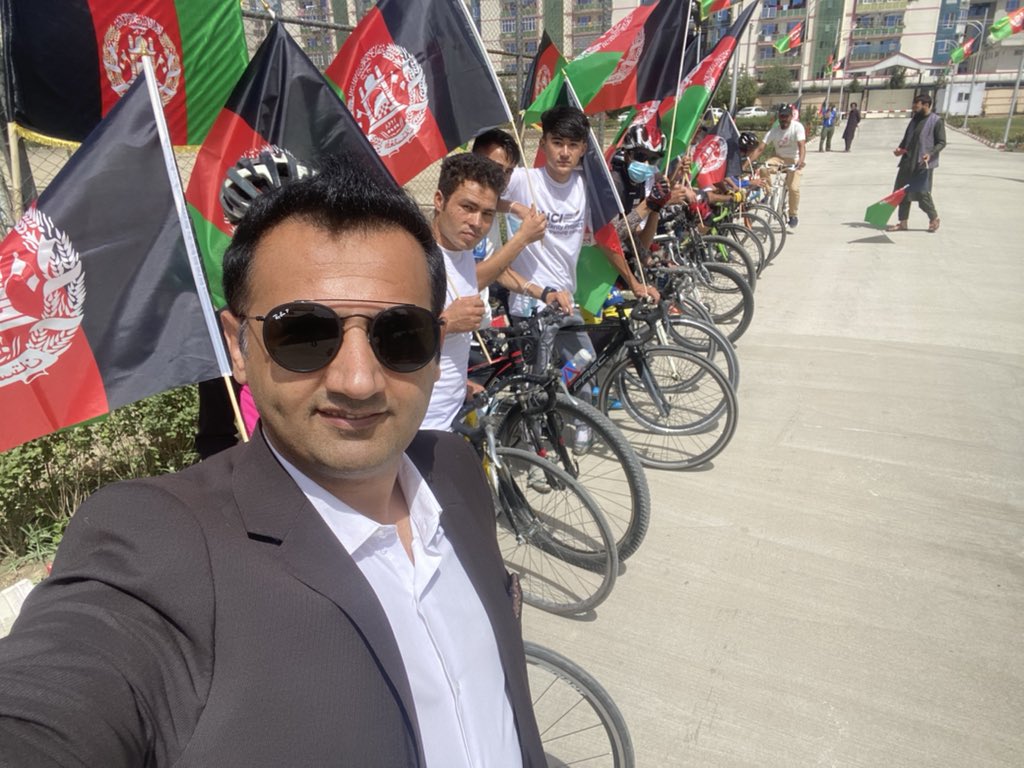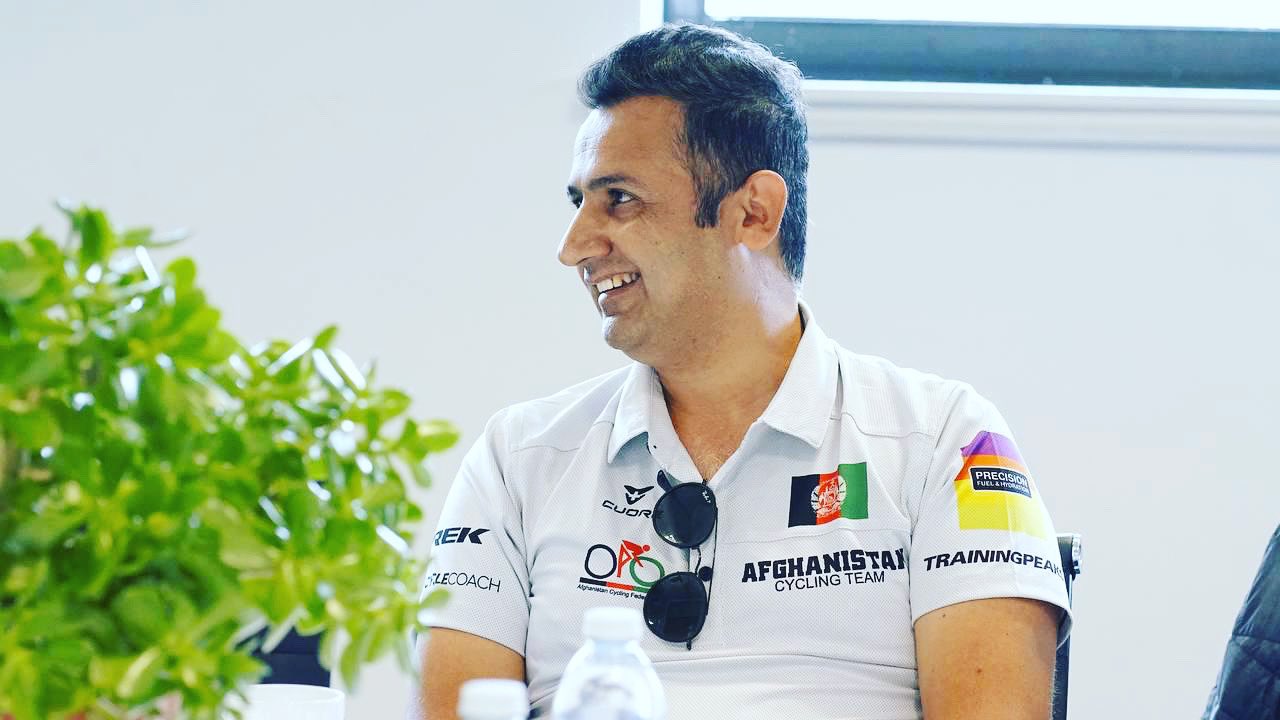The UCI Ethics Commission has announced a 15-month suspension for the president of the Afghan Cycling Federation, banning him from all cycling-related activities and finally bringing to an end a twisting, sordid saga three years in the making.
As president of the Afghan Cycling Federation, Fazli Ahmad Fazli was involved in the creation of lists used for the evacuation of a group of athletes and civilians from Afghanistan in the wake of the Taliban’s sudden return to power in 2021. The UCI, working in collaboration with a range of governments and NGOs to secure safe passage, rightly took pride in their efforts. However, when questions were raised about the legitimacy of the lists provided by Fazli – numerous sources told this reporter, at the time working for CyclingTips, that they had been manipulated in favour of family and friends of Fazli’s – the UCI did not take kindly to any shade on their shining moment.
Cycling's governing body closed its ranks in support of the Afghan Cycling Federation and its president, Fazli Ahmad Fazli. This support of Fazli continued even after further allegations of the verbal and physical abuse of a number of cyclists. One cyclist alleged that he had been abducted and beaten at the orders of Fazli; several other cyclists were recipients of death threats; Fazli allegedly told some victimised riders that he was himself aligned with the Taliban; and, troublingly, three female cyclists of the Hazara minority alleged that they had been repeatedly disparaged by Fazli even while in Switzerland under the guardianship of the UCI.

Despite repeated attempts to alert the UCI to the ongoing abuse – at one point, there were 13 consecutive failures to respond to this reporter, including to emails warning of specific threats to specific individuals – cycling’s governing body continued to support Fazli, awarding him with a UCI Merit Award in recognition of his work in support of the Afghan cyclist community. Angered by negative attention on their bold humanitarian efforts, the organisation went on the attack: after denying accreditation for this reporter at the 2022 World Championships, an earlier interview surfaced revealing the outright animosity of UCI President, David Lappartient. “I will never answer to this guy. He is someone who cannot be trusted... I think he wakes up in the morning to destroy the institution,” Lappartient said. “Are you sure he’s a journalist?,” he continued. “I hope that journalists can be honest in the way they can see what's right and wrong. I can tell you in all things reported in that article there are a lot of things that are not verified or accurate."
After a growing wave of pressure on the UCI – including independently reported stories on CyclingNews and in Swiss television, backing CyclingTips’ reporting – a formal complaint against Fazli was filed in May 2022 with the UCI Ethics Commission, an independent body tasked with overseeing and enforcing the UCI Code of Ethics. At both the 2022 and 2023 UCI Congress, the Ethics Commission progress report noted the ongoing investigation into the claims against the Afghan Cycling Federation, telling Escape Collective that “the case at hand is particularly complex considering the number of persons interrogated, the languages [sic] barriers and requests for anonymity.”
For more than two years, Fazli continued to enjoy the support of the UCI, which continued to celebrate the evacuation efforts. In 2024, he was also awarded a merit award from the Asian Cycling Confederation. All the while, Afghan cyclists – both within Afghanistan and abroad – continued to live in fear of reprisals, either from the Taliban or from their own cycling federation.
On Tuesday, the Ethics Commission handed down a suspension for Fazli, finding that “the President of the Afghanistan Cycling Federation had, on several occasions, sent messages to members of the Afghan cycling community which were deemed to be in breach of Articles 5, 6.4 and 2.1 of Annex 1 of the UCI Code of Ethics due to their abusive and/or threatening nature, and the fact that he therefore abused his position.”
There are no winners from this drawn-out and sordid affair, which started with a horrendous situation, pivoted into brave but contentious humanitarian efforts, and swiftly descended into rancour. The entire episode has revealed the UCI’s willingness to target media speaking against it, and dismiss viewpoints that were inconvenient to their chosen narrative. As Shannon Galpin – an Afghan cycling advocate who worked for years to save Afghan cyclists – put it, “I think this case speaks to what those of us within the sports and human rights community have been screaming into the void for years – that the system for reporting abuse favours abusers. For the past two and a half years, the majority of Afghan cyclists have survived at the intersection of rebuilding their lives as refugees while Fazli has been given awards, supported, and legitimised by UCI,” she told Escape Collective.
Fazli Ahmed Fazli has been removed as president of the Afghan Cycling Federation, but the damage of the past few years will remain. It’s there in the people who lived in fear, who suffered abuse, and in the collateral harm to the UCI’s reputation.
Did we do a good job with this story?


